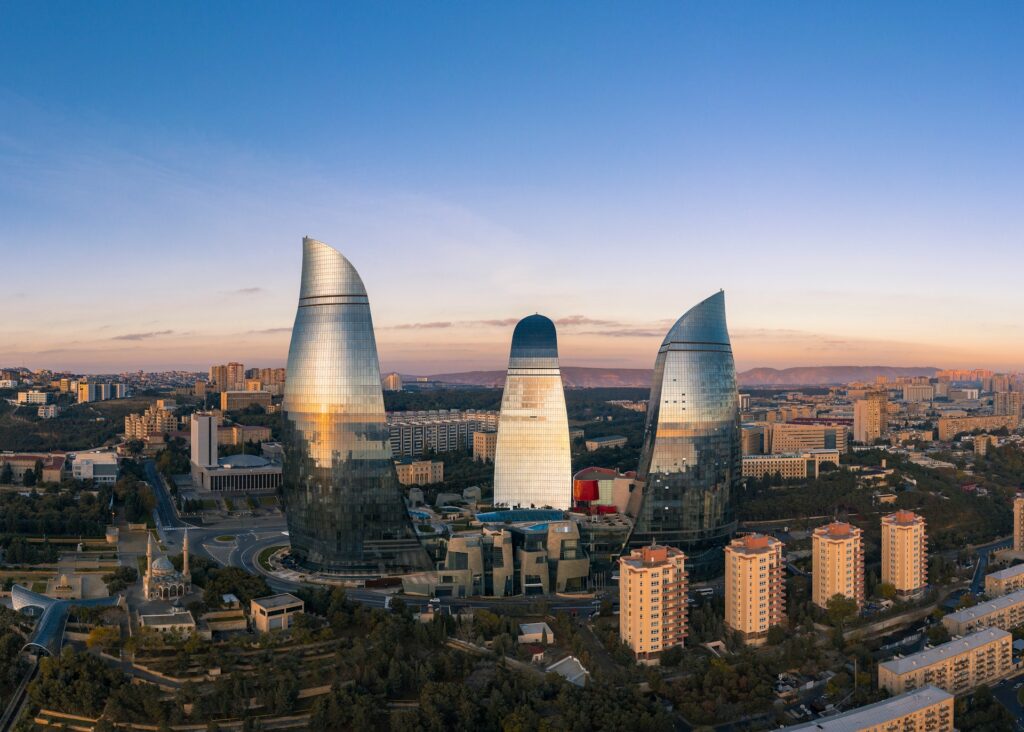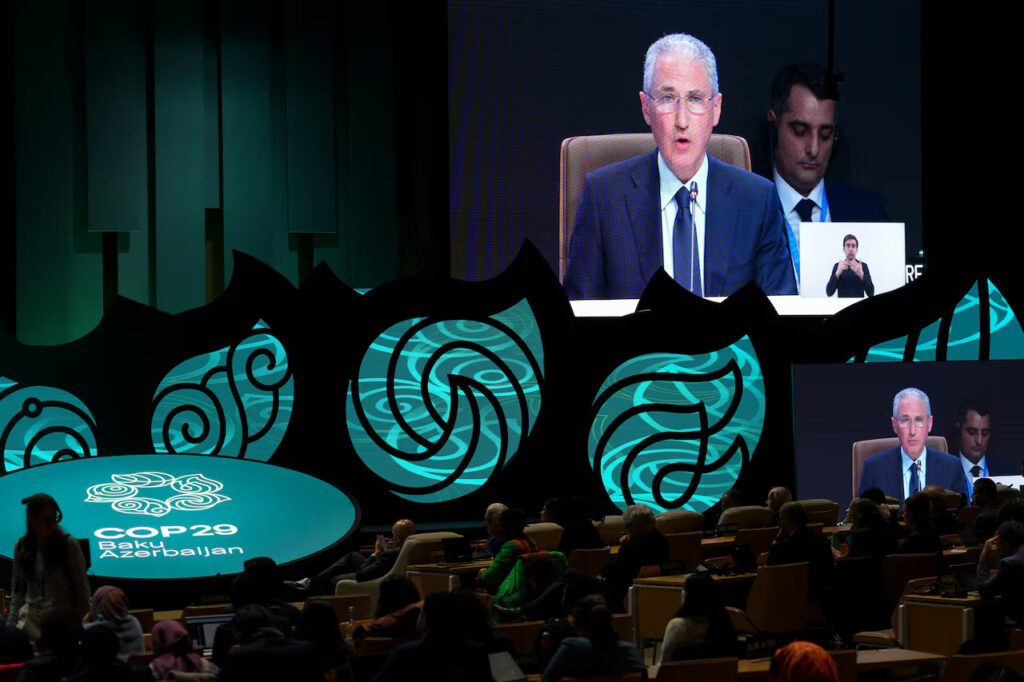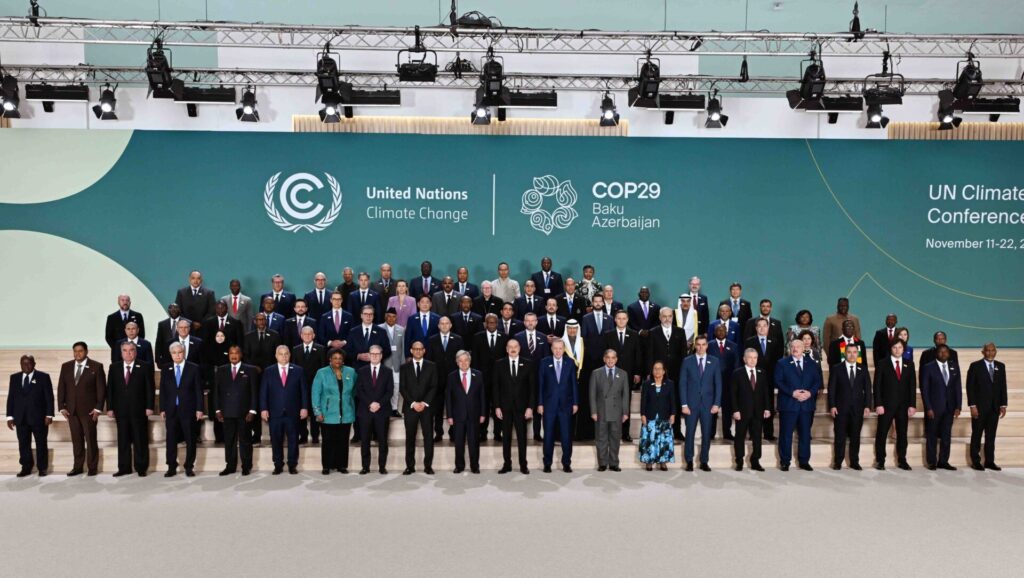
COP29: A Pivotal Moment in Global Climate Action
Azerbaijan’s Role at COP29: Navigating Climate Leadership and Energy Realities

As the host of the 29th Conference of the Parties (COP29), Azerbaijan has taken center stage in the global climate discourse. While the country’s energy-driven economy presents unique challenges, its role as the summit’s convenor provides an opportunity to showcase its climate initiatives, outline its commitments, and contribute to the broader global effort to combat climate change.
A Unique Host Amid Energy Realities
Azerbaijan, a nation rich in oil and natural gas reserves, faces a dual challenge of balancing economic reliance on fossil fuels with its responsibilities in global climate action. During the summit, President Ilham Aliyev defended the country’s use of its natural resources, highlighting the fact that no nation should be judged for leveraging its energy wealth while also emphasizing Azerbaijan’s right to frame its own roadmap toward sustainable development.
The 29th Conference of the Parties (COP29) to the United Nations Framework Convention on Climate Change (UNFCCC) commenced in Baku, Azerbaijan, is critical juncture in the global fight against climate change. With representatives from nearly 200 nations, the summit seeks to tackle urgent climate issues, ranging from climate finance to emissions trading mechanisms, in the midst of a backdrop of intensifying climate-related challenges.
Key Developments and Announcements

1. New Revenue Streams for Climate Finance
Barbados Prime Minister Mia Mottley made an impassioned plea for taxes on fossil fuels, aviation, and shipping. These levies could potentially generate hundreds of billions of dollars annually, offering a much-needed boost to global climate finance. Mottley’s proposal underscores the urgency of mobilizing innovative funding mechanisms to address the escalating climate crisis.
2. Expanded Commitments from Multilateral Banks
In a landmark announcement, the world’s top multilateral development banks pledged to raise annual climate financing for low- and middle-income countries to $120 billion by 2030. This represents a 60% increase compared to 2023 levels, with $42 billion earmarked for adaptation projects—an area that remains critically underfunded despite growing needs.
3. Approval of Global Carbon Market Rules
A major breakthrough came with the adoption of rules governing a global carbon market under Article 6 of the Paris Agreement. This mechanism will enable countries to trade carbon credits, creating economic incentives for emissions reductions while providing financial support to less-developed nations. The agreement resolves nearly a decade of complex negotiations, signaling progress in international climate cooperation.
4. UK’s Ambitious Emission Reduction Target
UK Prime Minister Keir Starmer announced an ambitious new target to cut greenhouse gas emissions by 81% from 1990 levels by 2035, surpassing previous commitments. This move positions the UK as a leader in emissions reductions and could inspire other nations to raise their ambitions.
5. Financing Gaps and Challenges
European Central Bank President Christine Lagarde raised concerns about the widening gap between climate financing needs and commitments, warning that investment requirements are now up to 18 times higher than current pledges. This shortfall highlights the challenges of meeting the global goal to limit warming to 1.5 degrees Celsius.
6. Rejection of Finance Framework by Developing Nations
The G77 and China rejected a proposed framework for a new climate finance goal, arguing that it failed to address their priorities. This highlights ongoing tensions between developed and developing nations over funding responsibilities, a central issue at this year’s summit.
Expected Impact and Challenges

COP29 has demonstrated progress in several areas, particularly with the establishment of global carbon market rules and increased climate finance commitments. These developments provide a foundation for accelerated climate action, enabling countries to pursue ambitious emissions reductions and invest in adaptation.
However, significant hurdles remain. The rejection of the finance framework underscores persistent divides between developed and developing nations. Meanwhile, geopolitical tensions, such as Azerbaijan’s defense of fossil fuels and concerns over its human rights record, complicate the summit’s broader agenda.
As climate impacts intensify, the stakes at COP29 are higher than ever. The summit’s success hinges on bridging political divides and translating commitments into tangible action. With time running out to limit global warming, COP29 may prove to be a defining moment for humanity’s response to the climate crisis.
Subscribe to The Sustainable Brands Journal for more environmental news, stories, interviews, and updates.

Prachi, an accomplished Chief-Editor at The Sustainable Brands Journal, has 15+ years of experience in Europe, the Middle East, and India, managing 90+ global sustainable brands. She’s a prolific writer in sustainability, contributing to various publications. Prachi’s unwavering passion and expertise make her a recognized authority, driving positive change and inspiring a sustainable future.





